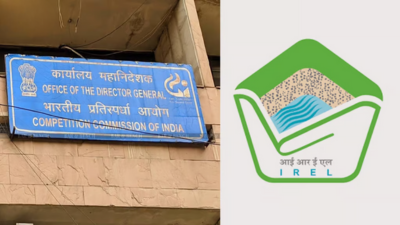The Competition Commission of India (CCI) recently dismissed a complaint alleging abuse of a dominant position by IREL (India) Limited (formerly Indian Rare Earths Limited) [Kalpit Sultania v. IREL (India) Limited].
A four-member CCI panel, chaired by Ravneet Kaur, concluded that while IREL held a dominant position in the mining and supply of Beach Sand Sillimanite in India, it did not misuse this dominance.
This decision concludes a three-year-long investigation by the CCI into allegations that IREL, a central government-owned entity, violated the Competition Act, 2002. IREL operates under the Department of Atomic Energy (DAE) and is involved in the production and sale of minerals such as Ilmenite, Rutile, Zircon, Monazite, Sillimanite, and Garnet, along with various value-added products through its four units located in Odisha, Kerala, and Tamil Nadu.
The complaint, filed by Kalpit Sultania, focused on Beach Sand Sillimanite. It argued that since 2016, the Central government categorized Sillimanite as an atomic mineral, barring private companies from mining it. As a result, IREL became the sole producer of Beach Sand Sillimanite in India.
Sultania accused IREL of abusing its dominant position by:
Drastically increasing the price of Sillimanite, from ₹9,000 per metric ton in 2016-17 to ₹14,000 per metric ton in 2020-21.
Engaging in discriminatory pricing practices that favored multinational and foreign companies over Micro, Small & Medium Enterprises (MSMEs) in India.
Controlling the supply of Beach Sand Sillimanite arbitrarily, forcing customers to accept quantities dictated by IREL.
Director General’s Investigation
Based on the initial information and responses, the CCI concluded that IREL had significant economic power, allowing it to operate independently of market forces. Thus, in January 2022, the CCI directed the Director General (DG) to investigate the matter and submit a report.
The DG’s findings revealed that after the Central government notification, only IREL and Kerala Minerals and Metals Limited (KMML) remained in the Beach Sand Sillimanite business. The DG noted that IREL held a substantial market share during the period of the alleged misconduct and had considerable financial resources, infrastructure, and control over the supply of Sillimanite from 2019-20 onwards.
Despite its market dominance, the DG found evidence suggesting IREL engaged in anti-competitive practices, such as discriminatory pricing and biased supply policies against domestic customers in favor of foreign clients, in violation of the Competition Act, 2002.
Why IREL Prevailed
IREL argued that it was not an ‘enterprise’ under Section 2(h) of the Competition Act, 2002, because of its affiliation with the DAE. However, the CCI found that IREL is a Miniratna Category-I Public Sector Undertaking (PSU), incorporated in 1950 and fully managed by a Board of Directors since 1963. Therefore, the CCI determined that IREL was not a department of the government.
Regarding IREL’s market dominance, the CCI noted that IREL’s assets and turnover were significantly larger than those of its competitors, and its customers had absorbed the high prices of Sillimanite, reflecting their dependency on IREL and a lack of counterbalancing buyer power.
However, when assessing whether IREL had abused this dominant position under Section 4(2)(a)(ii) of the Act, which pertains to imposing unfair or discriminatory prices, the CCI found no evidence to support the allegations. The CCI highlighted that KMML, despite being a smaller competitor, charged higher prices than IREL. It also observed that accusations of IREL favoring certain customers lacked economic incentives and evidence of unfair practices.
Furthermore, the CCI noted that no customers had lodged complaints about excessive pricing by IREL. Instead, IREL’s own vigilance department received a complaint suggesting it was charging too low, resulting in losses for the company.
Based on these findings, the CCI concluded that IREL had not misused its dominant market position.
The CCI dismissed the allegations of discriminatory pricing and conditions, recognizing that IREL employed a varied sales strategy for Sillimanite based on factors like availability, past relationships, and contract duration. This approach led to differential supply arrangements with different customers.
Sultania was represented in the matter by Advocates Ankur Sood, Roshan Santhalia, and Puja Jhankar, while IREL’s legal representation included Senior Advocate Tarun Gulati along with Advocates Abhay Joshi, Ayushi Sharma, Kumar Sambhav, and Bhaavi Agarwal.

















